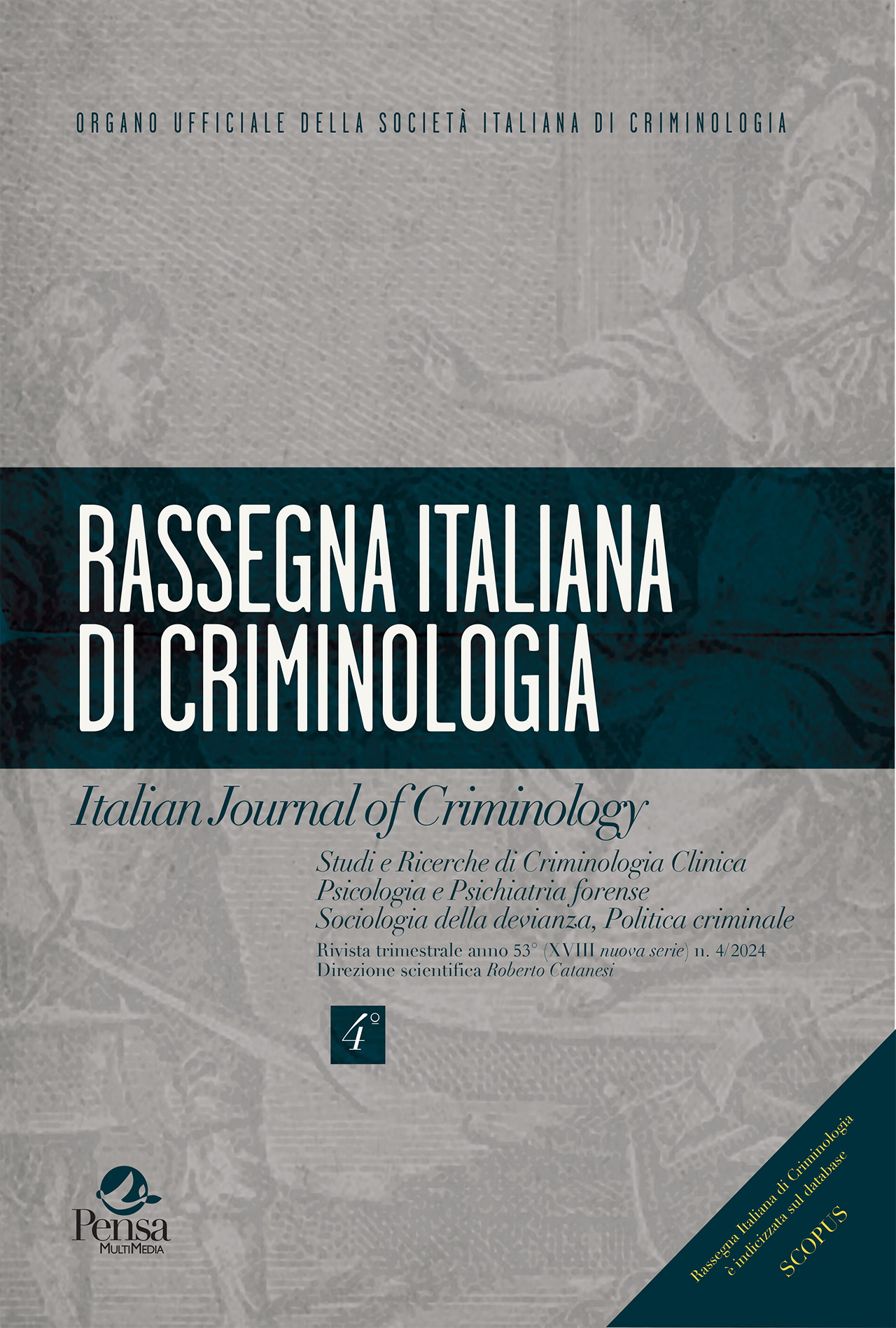Psychotherapeutic treatment of perpetrators of gender-based violence: the experience within Modena Prison
DOI:
https://doi.org/10.7347/RIC-042024-p287Abstract
Gender-based violence crimes confronts institutions with a hard but relevant issue: on one hand, the need to safeguard victims, through appropriate laws to ensure the safety of society; on the other hand, to encourage treatment interventions for perpetrators, so as to minimize the risk of recidivism. Conceiving the expiation of punishment as mere punitive detention risks supporting the culture of stigmatization and exclusion, which could encourage the reiteration of the crime itself, instead of allowing adequate prevention and subsequent reintegration of the person into society. From this perspective, prison should have a re-educational purpose, providing the opportunity to get in touch with oneself and lay the groundwork for potential change.
On this premise, Modena Prison and the Penitentiary Medicine of the Ausl of Modena have outlined a protocol of psychotherapeutic intervention of inmates for crimes of gender violence, aimed at fostering self-awareness and self-questioning, for the beginning of their potential change. The aim is to enable these patients to choose alternative relational modes to violence, thus reducing the risk of recidivism. For the purposes of prevention and social protection, the conclusion of the intervention within prison involves, whenever possible, sending the patient to health services of residence or to institutions/associations for continuity of treatment, both in the case of alternative measure to detention, and once the sentence has been served.
Downloads
Published
Issue
Section
License
Copyright (c) 2025 Debora Ginocchio, Paolo De Pascalis, Giulia Riccò, Giovanna Laura De Fazio

This work is licensed under a Creative Commons Attribution 4.0 International License.





